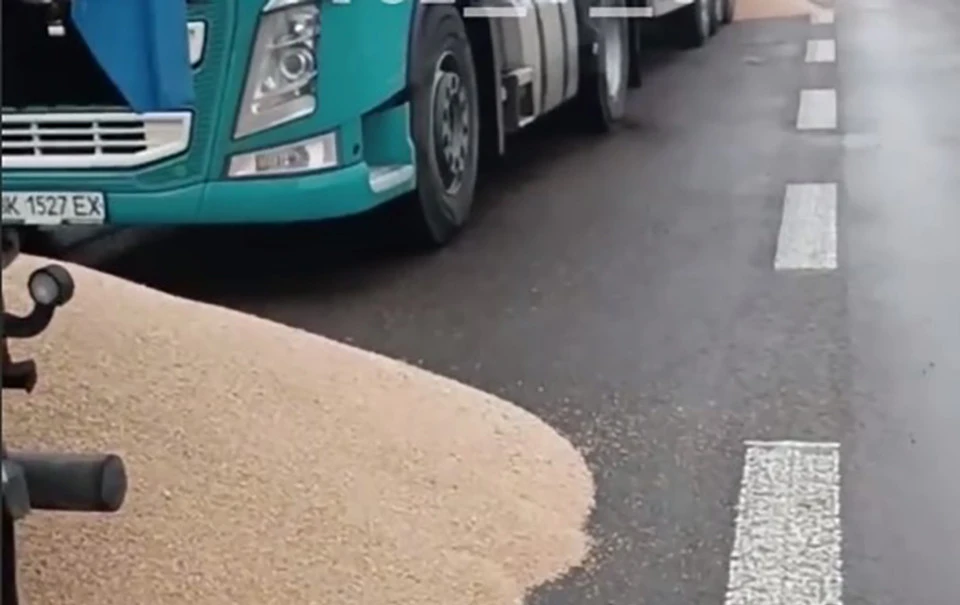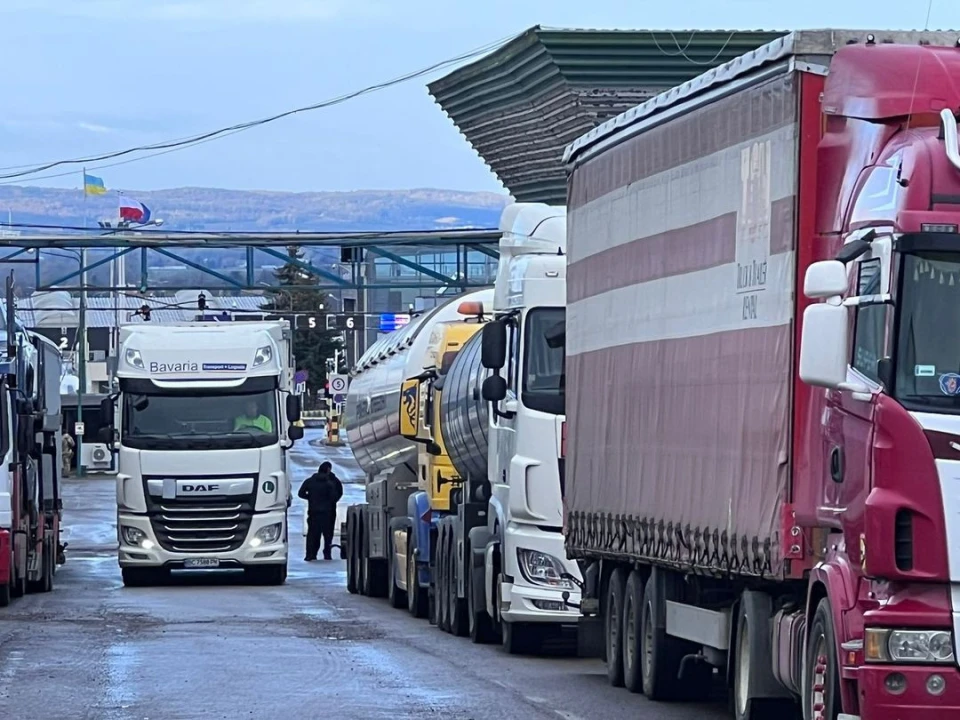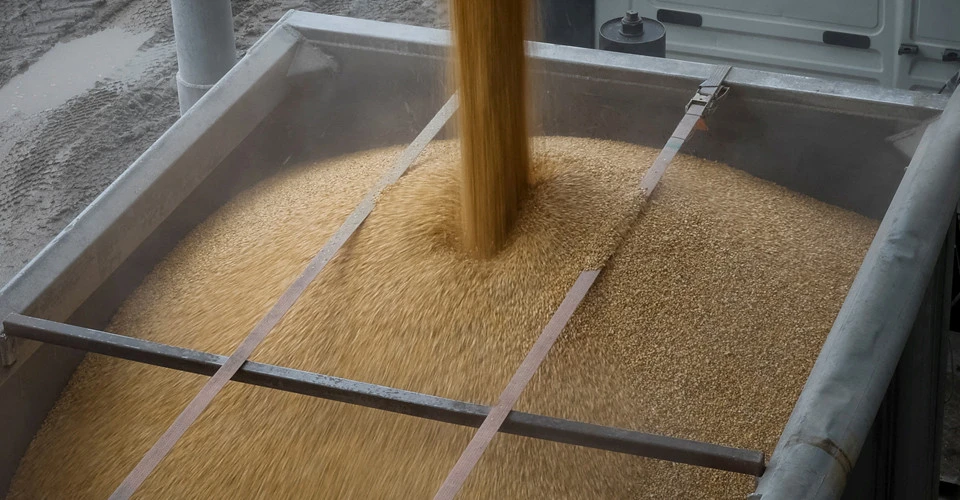
New blockade of Ukrainian-Polish border by farmers: chronology, demands and reactions
Polish farmers continue to block five checkpoints on the border with Ukraine, taking very controversial actions in the course of their protest
Espreso tells you what is happening and what the farmers are demanding.
The article is about:
- What is happening on the Ukraine-Poland border - blocked checkpoints and protests
- Why farmers are blocking checkpoints: what are their demands?
- How the authorities of Ukraine and Poland react to the blockade
- Previous blocking: history of protests at the border by carriers and farmers
What is happening on the Ukraine-Poland border - blocked checkpoints and protests
On the morning of February 9, Polish farmers again started protests on the border with Ukraine, expressing their complaints and dissatisfaction. At first, they blocked the Medyka-Shehyni, Hrebenne-Rava-Ruska, and Dorohusk-Yahodyn checkpoints.
However, later on, it was allegedly decided to end the blockade at the Medyka-Shehyni checkpoint. Instead, the situation with the protests at the Dorohusk-Yahodyn checkpoint escalated. Here, the Poles simply began to pour grain from Ukrainian trucks onto the ground.
"The police arrived, shrugged, collected the data, and that was it. They wanted to open the hatch with a battery-powered grinder, they broke the seal and poured out the wheat. Three tons were poured out of each truck. These are our "Polish friends". It was unexpected, but the fact is the fact," an eyewitness said at the time. The Polish police claimed that they were investigating the circumstances.
Vadym Shyrytiuk, one of the drivers whose truck the grain was poured out of, emphasized after the incident that at the time he had the impression that the Polish police fully supported the protesters, as they did not respond to the first call from Ukrainians. However, they responded quickly to the second call only after the driver received the phone number of the Ukrainian consul in Poland.
It is also worth noting that this action was most likely organized by Rafał Mekler, one of the inspirers of the protests, the owner of a logistics company and the leader of the Lublin branch of the fringe party Confederation. The Center for Countering Disinformation stated this.
And on Monday, February 12, Polish protesters expanded the blockade on the border with Ukraine to five checkpoints. More than a thousand Ukrainian trucks were stuck in queues at the blocked checkpoints. On Tuesday, February 13, Polish farmers partially blocked the sixth checkpoint on the border with Ukraine, Korczowa-Krakovets.
Meanwhile, protest moods continue to grow. Starting February 20, Polish farmers promise to block all checkpoints on the border between Poland and Ukraine, including transshipment railroad stations and seaports.
The protesters call on the public to support their action. They argue that their actions are aimed at "ensuring the country's food security."

Why farmers block checkpoints: what are their demands?
Interestingly, most of the demands of Polish farmers are not directly related to their Ukrainian counterparts. The protesters themselves say that this is not a protest against Ukrainian farmers but against Ukrainian oligarchs.
"The action is nationwide. Today, all checkpoints on the border with Ukraine are blocked. Our goal is to block uncontrolled imports of agricultural products from Ukraine. Another goal is the abolition of the green order, although this does not apply to Ukrainian farmers, but rather to farmers in Poland and Europe as a whole, but the main thing is the blockade of uncontrolled imports from Ukraine," one of the organizers of the protest at the Zosyn checkpoint told Espreso.
At the same time, the protesters emphasized that they would like to restore decent conditions for all Polish farmers, and to do so, they demand not only the abolition of the green deal for Ukraine but also compensation for farmers' lost income and increased subsidies for agricultural fuel. This is their way of attracting the attention of the Polish authorities.
Roman Kondrów, another co-organizer of the protest, said the reason was that nothing had been done about the problems of technical grain from Ukraine since the previous protests.
"It is constantly coming to Poland. That's why farmers got angry and took to the streets, went to the checkpoints. They want to prevent this," he explains their position in a comment to an Espreso correspondent. "Not you, ordinary Ukrainians, but big businessmen with big money, they control the world and the agrarian policy in Poland and Ukraine."
Moreover, Kondrów also said that they had heard rumors that Ukraine was allegedly producing less sugar than it was exporting to Poland.
"So we suspect that the oligarchs are bringing it from Russia, and that sugar is going to Europe via Poland. And here we also appeal to your authorities to prevent this," the protester put forward his conspiracy theory and stressed that to stop blocking the checkpoints, they demand price stabilization in the country, i.e. in Poland.
Some carriers also support the farmers, in particular, Mr. Zbigniew said in a comment to Espreso that farmers must fight for their rights. He also believes that it would be fair to return to Ukrainian carriers the permits that were canceled as part of the agreement signed with the EU on the liberalization of road transportation.

How the authorities of Ukraine and Poland react to the blockade
The Ministry of Agrarian Policy of Ukraine has strongly condemned the deliberate elimination of Ukrainian grain by Polish protesters on the Ukrainian-Polish border.
"We understand when Polish farmers defend their interests in a civilized manner. However, this case of destruction of Ukrainian wheat has nothing to do with peaceful protests from either a legal or moral point of view," the ministry emphasized.
However, along with condemning the latest protest action, the Ministry of Agrarian Policy also expressed sincere gratitude to the Poles who have helped and continue to help the Ukrainian people. They also emphasized that such incidents could not affect the common struggle and the great support of the Polish people, which Ukrainians have been experiencing for 2 years in the war against the Russian invader.
Meanwhile, Ukrainian MP Mykola Kniazhytskyi called on the Ukrainian government and the president to appeal to the Polish National Security and Defense Council to hold an immediate joint meeting and stop provocations on the border.
"What's happening is obviously beastliness. When Ukrainians watch on their screens how bread is being thrown to the ground, you know perfectly well that in our tradition, which unites the west and east of Ukraine, this is perhaps the worst sin. Because the nation that survived the Holodomor, which is now harvesting this bread under mines, bullets, and shelling from Russian invaders, actually treats bread as something sacred. This has always been the case everywhere in Europe, and only a direct Russian order to the organizers of these actions could obviously have served to create such a picture," the MP is convinced.
Foreign Minister Dmytro Kuleba called the spoilage of Ukrainian grain at the Polish border unacceptable and emphasized that every farmer "should know how much hard work it takes to grow grain, especially in wartime."
"For the sake of friendly Ukrainian-Polish relations, the perpetrators of this provocation must be brought to justice," he emphasized.
Polish Prime Minister Donald Tusk said that he considers himself the most pro-Ukrainian politician in Europe, but he must take into account the interests of food security in Poland and Europe.
"It is difficult to find a more pro-Ukrainian politician in Europe than me, and it is difficult to find a more pro-Ukrainian nation in Europe than Poland, but we must also keep in mind the interests of food security in Poland and Europe," he emphasized.
Previous blockade: the history of protests at the border by carriers and farmers
On November 6, Polish truckers went on strike at the Polish-Ukrainian border. Later, Polish carriers completely blocked truck traffic at two checkpoints on the border with Ukraine.
On November 9, a meeting was held in Poland between government officials and carriers blocking the border with Ukraine, but it ended in nothing. Meanwhile, the queues of trucks are getting longer. Ukraine has proposed to the Polish authorities to launch lanes for empty trucks and is awaiting a response from them.
Later, Polish carriers promised to tighten the blockade on the border with Ukraine. In addition, customs officers began to record an increase in truck queues in the Slovak direction.
Ukraine and Poland announced that they were preparing claims for damages caused by the blockade of border crossing points. In addition, it has become known that Polish carriers are not allowing humanitarian aid and dangerous goods to pass through.
Meanwhile, the Polish government called on Ukraine to cancel registration in the e-queue for empty trucks. The Polish minister also met with the protesters and offered them a compromise solution.
On December 1, the blocked Ukrainian drivers at the Polish border held talks with the consul. On December 4, the Uhryniv-Dolhobyczów border crossing point opened to empty trucks.
As a result of the protesters' blocking of the border with Ukraine, exports through these checkpoints decreased by 40%, and the state budget of Ukraine lost UAH 9.3 billion due to a shortfall in customs payments.
Later it was announced that the trucks blocked on the border with Poland would be returned to Ukraine by rail. On the evening of December 7, Ukrzaliznytsia Railways sent the first container train with trucks to Poland, which included 23 platforms with 13 loaded tractors and semi-trailers.
On Monday, December 11, truck traffic was unblocked at the Polish-Ukrainian border through the Yahodyn-Dorohusk checkpoint. However, in the evening of the same day, protesters blocked the unblocked crossing with a truck.
The European Commission called for unblocking all checkpoints on the border with Poland.
On Saturday, December 23, Polish farmers suspended their protests at the Shehyni-Medyka checkpoint. The new Polish government said it would hold talks with the protesters.
On January 4, they resumed the blockade of the border crossing and said they planned to protest until February 3.
Deputy Minister of Communities, Territories and Infrastructure Development Serhiy Derkach said that Ukraine had fulfilled its part of the action plan agreed with the Polish government to unblock the border with Ukraine for Polish carriers. Now Kyiv is waiting for further steps from Warsaw. At the same time, he denied the protesters' claims that the abolition of permits for Ukraine had allegedly "killed" the Polish market. Derkach noted that the number of bilateral traffic by Polish carriers has decreased by only 5% compared to the period before the full-scale invasion.
European Commissioner for Transport Adina Valean sends a letter to Polish Infrastructure Minister Dariusz Klimczak regarding the blocking of checkpoints on the border with Ukraine by Polish carriers.
On January 16, Polish carriers ended their protest on the border with Ukraine. At that time, Polish carriers, who had been blocking border crossings with Ukraine since November, reached an agreement with the government on certain demands and finally ended their protest.
"This is not the end, but the protest will be suspended... We have agreed on certain conditions, we will give the government time to work, as it is a new government," said Tomasz Borkowski of the Committee for the Protection of Transport Carriers and Employers.
At the same time, the leader of the protesters, and, as already mentioned, a representative of the Confederation party (known for fomenting anti-Ukrainian sentiment), Rafał Mekler, promised to "return to the border" if the demands were not met.
- News















































